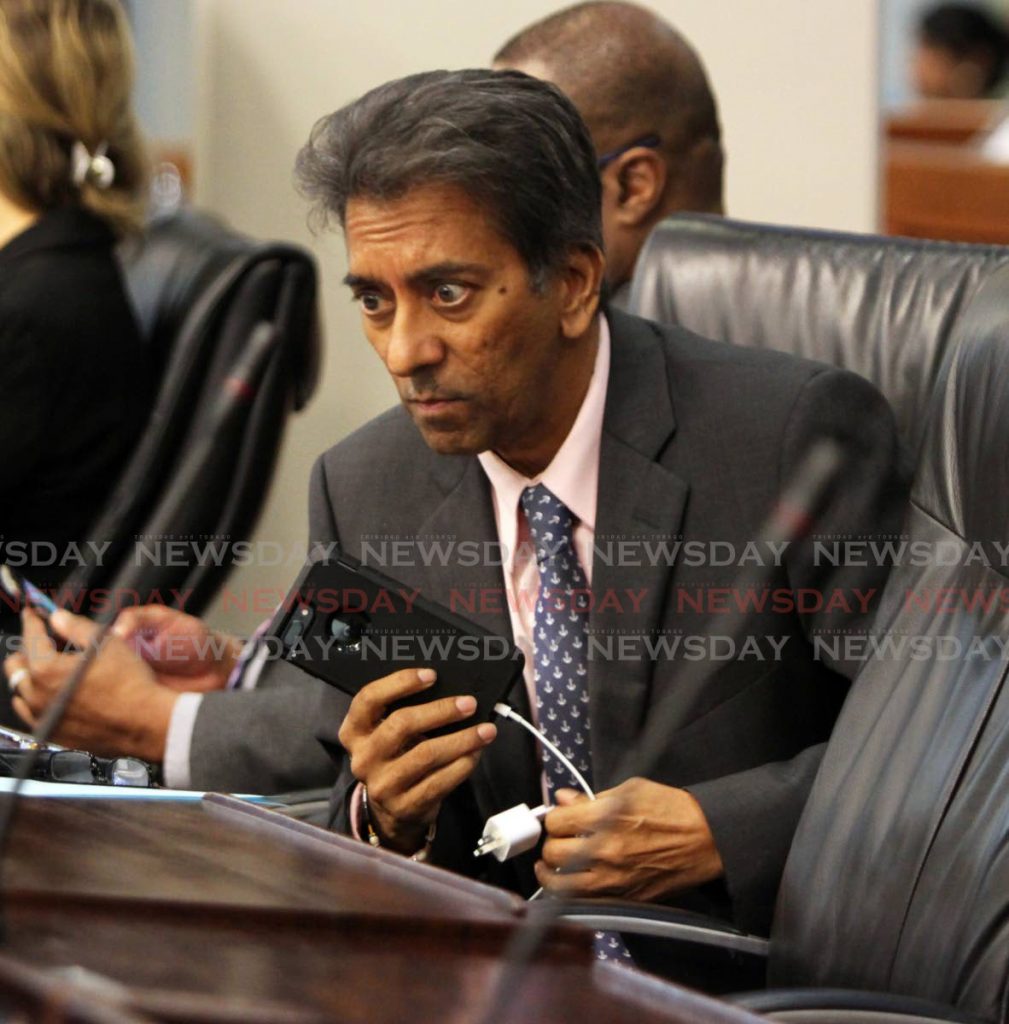Independent senators call for JSC for judge-only trial bill

As debate continued on the Miscellaneous Provisions (Trial By Judge Alone) Bill, 2023 on Friday, several independent senators expressed dissatisfaction with clauses of the bill.
Major parts of the bill state: a person shall be judged by judge alone except if they want to be tried by a jury, with the court so directing in the interests of justice; the number of jurors be reduced to nine for matters of treason and murder, and six for all other indictable matters; and, the category of special jurors be repealed, with lay assessors (experts in technical matters) assisting judges during trials.
Temporary opposition Senator Rishi Tripathi said it was clear there was no support for the bill from the Law Association and the Criminal Bar Association.
He said studies showed in smaller juries, individual jurors had a greater influence. He said larger juries recall facts more accurately and give smaller awards.
Tripathi said in countries which had implemented lay assessors, their contribution was found to be weak. He asked what benefit was to be derived from their usage.
“Their advice can be excluded by the judge so why use them? They are going to be paid from the Consolidated Fund, can we not find some other way to pay them? Why not put more funding into the judiciary? The existing law is adequate, more resources need to be provided, and government needs to publicly show its faith in the judiciary.”
Independent Senator Hazel Thompson-Ahye said she agreed that the bill should be sent to a joint select committee of Parliament. She said in Canada, studies had shown that reducing the jury size failed to show it would reduce effectiveness. She said she did not agree with having the judge-alone trial as the default. She said there have been instances where decisions by judges had drawn a lot of condemnation.
“The system must be fair and must be seen to be fair, and jury trials seem to provide this. There is a need for ongoing training, as gender bias is very real. It would be helpful if assistance could be given in assisting the accused in obtaining a lawyer, as this contributes to the delay in the judicial process.”
Independent Senator Dr Varma Deyalsingh based his contribution around the arguments about cost, speed, and the democratic principles of trial by peers.
“We have heard there is a ripple effect when people have to leave to go pick up their children, when they have to leave their jobs, when there’s sequestration, etc. There is a cost to maintaining democracy, I would be hesitant to remove this choice. Many commenters who are involved in the system say the delay is in the building of the case, not after the trial has already started. We have heard members here say the judge-only trials are an erosion of rights, we should consider, would people feel deprived if they are not allowed to have a jury?”
Deyalsingh said judges may not know what is going on in society, as opposed to a jury. He said juries are judging on facts and have been doing it for years.
He recommended that since adverse publicity was a concern, as well as jurors being threatened, the judiciary should consider getting Caricom neighbours to sit on juries. He said studies showed that smaller juries were more likely to convict when there is doubt.
Deyalsingh said the Criminal Bar and the Law Association have come out against the legislation, and he would be inclined to investigate why they had a problem with it.
UNC temporary senator Karunaa Bisramsingh said the legislation would not achieve its stated purpose of speeding up trials. She said other pieces of legislation designed to do so had not had the desired effect.
“We are introducing bills to speed things up but they’re not working because of limited manpower, especially in the DPP’s office. The problems that contribute to the major delay in the system need to be addressed and it’s not in implementing judge alone trials. Covid19 saved judge-alone trials which started in 2019, as no juries could be empaneled. How many of the 59 judge-alone trials done between 2019 and now have been appealed?”
She asked whether larger numbers of jurors wouldn’t decrease the risk of influence. She questioned why indictments take so long to file.
Government senator Randall Mitchell said six of the judge-only trials had been appealed.
Independent senator Deoroop Teemal said reducing the number of jurors limits the contribution of lay person in the judicial process.
“Should cost be a primary or secondary reason, when it comes to people’s lives? It should really be a secondary matter when it comes to fairness of trial, and maintaining democratic principles.”
He questioned whether the selection process for jurors should be reformed. He asked why special jurors had never been used, according to the AG, and whether the same problem would occur with lay assessors.
The AG said this piece of legislation was not meant to be stand-alone, and when all the pieces of legislation were put together, the aim was to take a case from committal to the start of the High Court trial in six months.
The AG was in the process of winding up the debate when the acting leader of government business in the Senate Paula Gopee-Scoon called for the session to be adjourned until May 16.


Comments
"Independent senators call for JSC for judge-only trial bill"